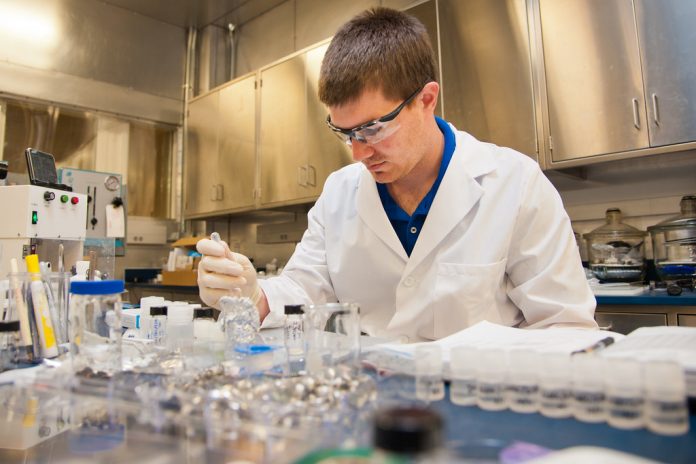
By Philip Stevens, Executive Director of Geneva Network, a research and advocacy organisation focusing on international innovation, trade and development policy.
Last week, the European Union has put forward a plan which it will present at the World Trade Organization (WTO) next month in response to calls to scrap intellectual property rights for Covid vaccines. While proponents of waiving of patent rights would like to allow more companies to manufacture copies of proprietary vaccines owned by the likes of Pfizer, AstraZeneca and Johnson & Johnson, the EU has presented an alternative, focused on export restrictions, pledges from vaccine developers and the flexibility of existing World Trade Organization rules.
Recently, a coalition of developing countries, including China, India and South Africa surprisingly received a degree* of support from the United States in their quest to suspend IP rights temporarily. Thankfully, the European Union, the United Kingdom, Japan, Switzerland remain opposed. Still, within the EU, splits are visible. Germany, France, Belgium, Sweden, the Netherlands and Italy are sceptical of the IP waiver, while Spain, Ireland, Austria, Greece, Finland and Poland support it.
The EU should hold firm and not give into to political pressure to back the WTO IP waiver proposal. That is also the message from an international coalition of 28 think tanks, including my own, which has just published a Joint Declaration in support for protection of IP rights for Covid vaccines.
The Joint Declaration credits IP for the tremendous progress we have seen with Covid vaccines, something which many said was impossible. It points out that in a mere 18 months, Covid has gone from being an unknown disease to a preventable disease, all thanks to four vaccines authorised by regulators in US, EU and elsewhere.
Intellectual property (IP) has facilitated research cooperation and manufacturing partnerships all over the world that accelerated vaccine production. Rivals have shared proprietary compounds, platforms and technologies to develop Covid vaccines in record time. Indeed, manufacturers are currently on track to make 12 billion doses by the end of 2021 – potentially sufficient to achieve global herd immunity.
These partnerships would not happen without the legal certainties provided by IP rights. Rip up the rules and the partnerships may crumble. The last thing the world needs at this delicate stage is a complete reshuffling of the deck, something which the Chinese-Indian WTO proposal envisages.
Here are the four key points made by the Joint Declaration:
- IPRs are crucial to sustainable vaccine manufacturing scale-up
- IPRs are essential for R&D for future pandemics
- Global competition, not forced local production, will keep vaccine prices low
- An IP waiver would have no effect on vaccine production without forced tech transfer, which would be extremely slow, beset by legal difficulties and economically damaging.
Fundamentally, the Joint Declaration challenges the assumption underpinning the IP waiver proposal that there would be spare manufacturing capacity that could be harnessed if only IP didn’t stand in the way. In reality, only a few countries have this advanced manufacturing capacity, and trying to build them in developing countries where they do not currently exist should not be the priority now.
Others with detailed knowledge of vaccine manufacturing agree, for example Derek Lowe, a scientific author, who used to be a pharmaceutical researcher:
“Most countries do not have industrial cell culture capacity or sterile fill-and-finish lines, and trying to start them from scratch is not a good use of time, money, and effort. It would be like deciding that Switzerland needs to be self-sufficient in sushi.”
The Moderna and Pfizer vaccines are based on mRNA, a new vaccine technology that is making its commercial debut during this pandemic.
Stephane Bancel, Moderna’s Chief Executive, has pointed out:
“There is no mRNA manufacturing capacity in the world. (…) This is a new technology. You cannot go hire people who know how to make the mRNA. Those people don’t exist. And then even if all those things were available, whoever wants to do mRNA vaccines will have to buy the machine, invent the manufacturing process, invent verification processes and analytical processes.”
Even without IP, building this new manufacturing capacity from scratch this would take months, if not years, by which time the existing partnerships would have long delivered.
Furthermore, vaccine ingredients and input materials, such as lipid particles and mixers to make mRNA vaccines, are in short supply globally. Novavax is running up against shortages of ingredients as diverse as Chilean tree bark and bioreactor bags, while other vaccine manufacturers scramble for the same products.
Lack of availability of input materials has nothing to do with IP rights but it has certainly been made worse by export restrictions imposed by many countries – including the United States. Therefore, the European Union is quite right to put forward the suggestion to limit export bans. These are ultimately self-defeating given that supply-chains for vaccine manufacturing involve many different countries.
The coalition says a zero IP world would be a giant step backward, discouraging partnerships and discouraging companies from refining their existing vaccines to combat new Covid-19 variants.
To adopt the IP waiver could derail every vaccine-manufacturing licensing deal and would throw global supply chains into chaos. It would jeopardize the billions of dollars currently being invested in upgrading manufacturing facilities and creating new ones.
With such a precedent, few companies will want to invest in new vaccines when the next pandemic comes. This would put the world at the mercy of government labs to research, develop, and manufacture vaccines.
A scary prospect indeed.
Despite the EU’s opposition to the IP waiver proposal, intellectual property rights are also being challenged at the EU level, as the European Commission’s new “Pharmaceutical Strategy for Europe” may, amongst others, contribute to a significant erosion of IP rights. Supporting the IP waiver would send a further signal that the EU is no longer an innovation-friendly investment destination, something which would also have significant negative economic implications.
Whoever wins this debate will be vital for the future of the EU. Intellectual property rights matter ever more in a world in which knowledge-industries are key. These will help us end this pandemic and help us to be better prepared for the next one.












